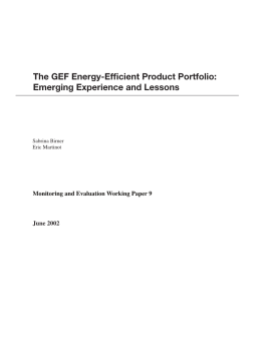From 1991 to 2000, the GEF approved eight projects designed to stimulate markets for energy-efficient products—lights, refrigerators, industrial boilers, and building chillers—in 12 developing and transitional countries. Project costs for this portfolio are about half a billion dollars, with GEF contributions of over $90 million leveraging additional co-financing of $430 million from other sources. Many of these projects take so-called "market transformation" approaches, which gained favor in developed countries in the 1990s. In general, market transformation programs aim to change market structure or function through both "supply push" and "demand pull" in order to sustainably increase the adoption of energy-efficient products, services, and practices.

